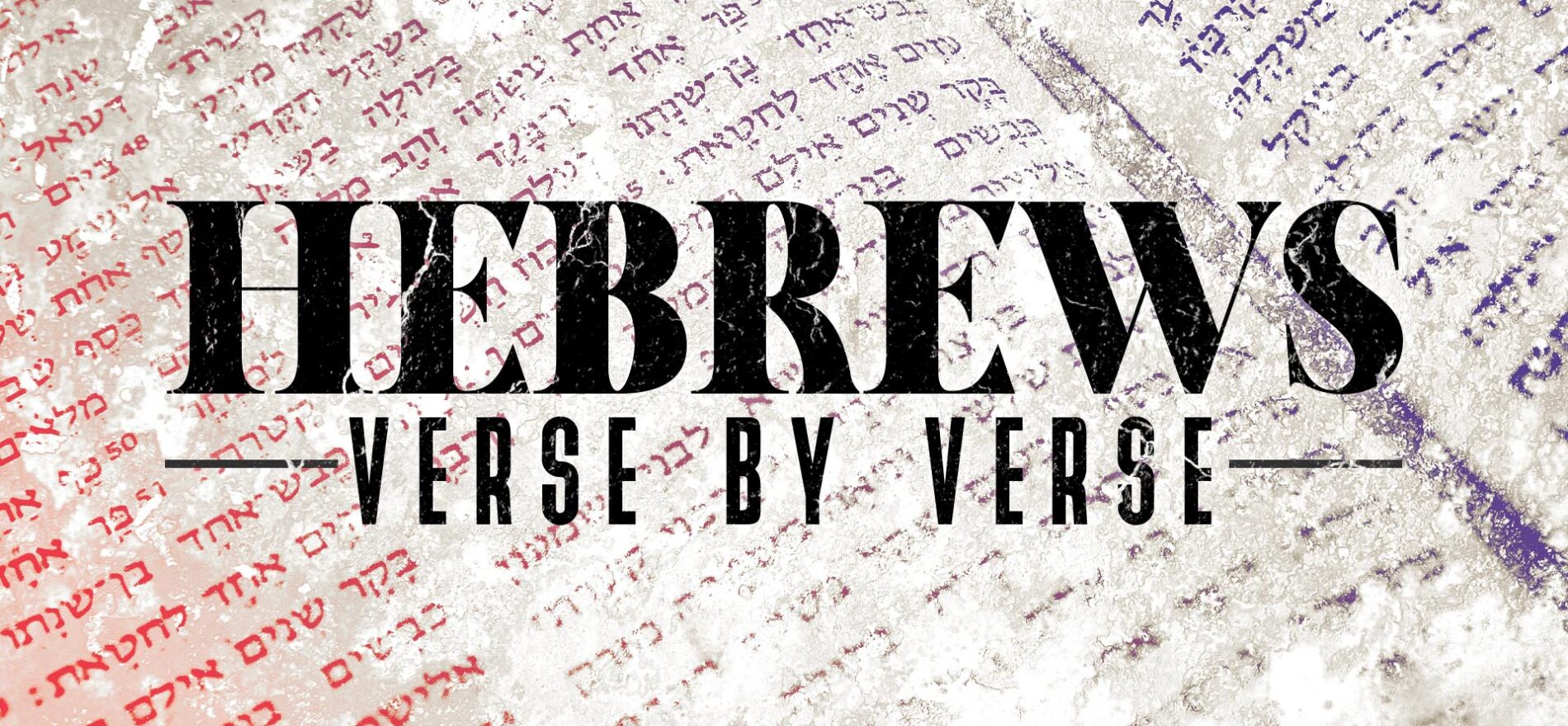Friends, I’m really glad to arrive at this moment in our study. Chapter ten contains both the apex and closing remarks of the author’s deep dive into Christ’s priesthood and sacrifice. To be honest, once I got to the middle of chapter eight, I had doubts that I had it in me to keep delivering quality content. A few articles ago, I said this was a very Jewish section of the Book of Hebrews. I was really feeling it. I’m as Gentile as they come, and on top of that, two thousand years removed from the context of the original audience. Studying this made me acutely aware of my shortcomings. But God is faithful, and I think we’ve drawn some good depth.
Since chapter seven the author has built three solid arguments. First, he built the argument for Christ’s high priesthood (Hebrews 7:1-8:13). Second, he built the argument for the inferiority of the earthly temple (Hebrews 9:1-10). Third, and finally, he began an argument for Christ’s superior sacrifice. (Hebrews 9:11-28). We’re finishing that argument today in Hebrews 10:1-18. Let’s get started.
Shadows of Good Things
1 For since the law has but a shadow of the good things to come instead of the true form of these realities, it can never, by the same sacrifices that are continually offered every year, make perfect those who draw near. 2 Otherwise, would they not have ceased to be offered, since the worshipers, having once been cleansed, would no longer have any consciousness of sins? 3 But in these sacrifices there is a reminder of sins every year. 4 For it is impossible for the blood of bulls and goats to take away sins.
– Hebrews 10:1-4 (ESV)
I feel it’s important to say once more that the author is not denigrating the old system. A shadow of a good thing is connected to a good thing, but it can never be the thing itself. The law gave us regulations for worship that perfectly served the purpose for which they were given. However, he is pointing out what should be plain to the reader. They weren’t sufficient to perfect the worshiper and deal with sin once and for all. The fact that the blood of bulls and goats had to be regularly spilled and sprinkled over things in the Temple implies the limited effectiveness and scope of those sacrifices.
Remember, the author was dealing with believers who believed returning to those sacrifices would somehow help their sanctification. But the point offered (and hopefully well taken) is that they couldn’t perfect worshipers in the old covenant, much less the new and better one! Adding the blood of bulls and goats to the blood of Christ isn’t only futile, but suggests that you haven’t actually believed at all. It is faith in Christ alone that saves, not Christ plus something else.
Look at verse four. Did you know that all of the New Testament uses of the word impossible happen in Hebrews? It means impotent, not possible, weak. Those sacrifices were impotent. It was not possible for them to change the heart of the worshiper. They were weak because they lacked the power to perfect. I don’t want to retread old ground too much, but as we draw near to the end of this discussion it’s good to be reminded once more. The blood of bulls and goats were a stop-gap measure until the fullness of time unfolded. They were the shadow of the greater sacrifice of Christ. By all means, they served their purpose, but they became obsolete with the death of Jesus. Continuing those sacrifices is not only unnecessary, but cruel and deceptive.
A Body You Have Prepared For Me
5 Consequently, when Christ came into the world, he said,
“Sacrifices and offerings you have not desired,
but a body have you prepared for me;
6 in burnt offerings and sin offerings
you have taken no pleasure.
7 Then I said, ‘Behold, I have come to do your will, O God,
as it is written of me in the scroll of the book.’”
8 When he said above, “You have neither desired nor taken pleasure in sacrifices and offerings and burnt offerings and sin offerings” (these are offered according to the law), 9 then he added, “Behold, I have come to do your will.” He does away with the first in order to establish the second. 10 And by that will we have been sanctified through the offering of the body of Jesus Christ once for all.
-Hebrews 10:5-10 (ESV)
Did Jesus say this? This isn’t a direct quote of something Jesus said in the gospels, but instead a citation of Psalm 40:6-7. The author did what many New Testament authors did: he reread the Old Testament through the life, death, and resurrection of Jesus. Psalm 40 was written by King David. However, because King David was understood as a type and shadow of the Messiah, any writing of David that seemed to link with Christ’s experiences were deemed prophetic. So Psalm 40:6-7 is understood by the author to speak both of David and Christ. But, that isn’t the real problem with this passage. Here’s Psalm 40:6-7 from the ESV.
6 In sacrifice and offering you have not delighted,
but you have given me an open ear.
Burnt offering and sin offering
you have not required.
7 Then I said, “Behold, I have come;
in the scroll of the book it is written of me:
(emphasis added)
I emboldened the differences. It appears that the author modified the passage for his purposes. But it only appears that way. This is yet another instance where the author quoted from the Septuagint (LXX), the Greek translation of the Old Testament that was widely used in first century Jewish and Christian communities. Modern English Bibles employ the Hebrew Old Testament, called the Masoretic Text, to translate the Old Testament.
This brings up a fair question. Why is there such a difference between the Hebrew and Greek texts in these verses? The Hebrew phrase in question from verse six literally means “you dug out ears for me.” I had to dig for a while before I arrived at a sensible explanation. There are times when translators come across phrases that have no sensible translation. Sometimes the Hebrew phrase doesn’t translate into a grammatically correct Greek (or English) phrase. Other times Hebrew idioms didn’t make much sense to Greek speakers. In both cases, translators typically employed a dynamically equivalent translation. Dynamic equivalence is the translation of words and phrases that retain the intended meaning but isn’t a word-for-word. This is what happened in the LXX translation of Psalm 40:6. Ancient translators understood the intended meaning of the Hebrew and employed a dynamically equivalent Greek phrase.
What does all of this mean? It means while the verbiage is different, the meaning is the same. The author of Hebrews employed the dynamically equivalent, widely used (and popular) Greek translation of the Old Testament, so we can remain confident in the infallibility of God’s Word.
But let’s not let this obscure the author’s purpose. Verse five links to verse ten. Both deal with His body. The Father sent Jesus, incarnated Him in a human body, and this body was offered once for all that we may be sanctified once for all. These are the bookends of this little section. You gave me a body. That body was offered. In between lies the reasons that no other sacrifice will do. The Father didn’t delight in those sacrifices because they never accomplished the mission. He does, however, delight in His Son. This points to a hard truth for many.
The Father delighted in His Son’s sacrifice. Isaiah 53:10 says it was God’s will to crush Him. Some translations say it was his good plan, while other say it pleased the LORD to bruise Him. The Hebrew (according to the varied English translations) seems to imply that it wasn’t merely God’s will, but that He took pleasure in the Son’s sacrifice. Here is where many deconstructors got off the bus. Many an atheist and agnostic have used this passage to decry cosmic child abuse. But that logic only betrays a worldly and unspiritual understanding of the LORD. What we’re going to discover later in Hebrews is the answer to the cosmic child abuse garbage.
2 looking to Jesus, the founder and perfecter of our faith, who for the joy that was set before him endured the cross, despising the shame, and is seated at the right hand of the throne of God.
– Hebrews 12:2 (ESV), emphasis added
The Father and Son were in on this together from the beginning. Jesus knew exactly what would be obtained by subjecting Himself to death on the cross. The sacrifice of His body was the plan all along. If I may say it this way, the Father and Son plotted together to undo the damage done to creation by sin and rebellion. This wasn’t the Father commanding the Son to die. It was the Son willingly offering His life to overturn death for all who would believe in Him! There’s no hint of abuse in such a selfless offering. The Son’s sacrifice delighted the Father because of the joyous outcome that would happen: the death of Death!
26 The last enemy to be destroyed is death.
– 1 Corinthians 15:26 (ESV)
He Perfected His Family
11 And every priest stands daily at his service, offering repeatedly the same sacrifices, which can never take away sins. 12 But when Christ had offered for all time a single sacrifice for sins, he sat down at the right hand of God, 13 waiting from that time until his enemies should be made a footstool for his feet. 14 For by a single offering he has perfected for all time those who are being sanctified.
– Hebrews 10:11-14 (ESV)
You can feel the finale coming. The author reminded his readers/hearers once more that the old system of priests and sacrifices are null and void. Why? Because Christ’s sacrifice made them obsolete. How? When Christ entered the heavenly Temple as the Lamb slain from the foundation of the world, he didn’t leave. The fact that He sat down and now waits for His enemies to be made His footstool means the work of His sacrifice is not only effective but absolutely finished. He doesn’t need to do it again and again. Once was enough, so He sat down and entered the intercessory phase of His work. He doesn’t need to die again. In fact, by design, He can’t die again. So He prays for us, without ceasing, until His return.
But notice verse 14. His single offering perfected for all time those who are being sanctified. Let me say that another way. He has made forever holy those are being made holy. Or another. He has forever made righteous those who are becoming righteous. Forgive me for taking some liberties, but I think I’m in bounds. All true believers live in a dual reality. We are both holy and becoming holy. We are both righteous and becoming righteous. We are both perfected and becoming perfect. We are both sanctified and becoming sanctified.
This dual reality is an on earth as it is in heaven kind of thing. We pray, let your kingdom come, let your will be done, on earth as it is in heaven. As new creations in Christ, we exist in both planes of reality. The apostle Paul taught this.
4 But God, being rich in mercy, because of the great love with which he loved us, 5 even when we were dead in our trespasses, made us alive together with Christ—by grace you have been saved— 6 and raised us up with him and seated us with him in the heavenly places in Christ Jesus,
– Ephesians 2:4-6 (ESV)
Note the past tense: God raised us up with Him and seated us with Him in the heavenly places in Christ Jesus. In a cosmic sense, everyone who is born again is immediately seated with the LORD in heaven. But in an earthly sense, we remain here for the good works that God prepared in advance for us to walk in (Ephesians 2:10). In heaven, we are completely holy, completely righteous, completely sanctified, perfected for all time by Christ’s single sacrifice. On earth, we are progressively becoming those things as we live out our human lives. When we pray, on earth as it is in heaven, we are asking for the reality of our heavenly state to manifest in our earthly state. In heaven, holiness, righteousness, sanctification are complete. On earth, we grow in them and gradually move toward that perfected status that we already have in heavenly places.
Not to beat this drum again, but how can a believer who is seated in heavenly places in Christ, perfected for all time, completely holy, completely righteous, completely sanctified, ever walk away or sin their way out of faith on earth if we believe all this on earth as it is in heaven stuff?
We can’t.
A Third Witness
15 And the Holy Spirit also bears witness to us; for after saying,
16 “This is the covenant that I will make with them
after those days, declares the Lord:
I will put my laws on their hearts,
and write them on their minds,”
17 then he adds,
“I will remember their sins and their lawless deeds no more.”
18 Where there is forgiveness of these, there is no longer any offering for sin.
-Hebrews 10:15-18 (ESV)
This is my opinion, but these four verses feel like a postscript on the entire argument. An inspired and important postscript, but a postscript nonetheless. The author already made a compelling argument, but here at the end, just to put the cherry on top, He threw in this bonus. By the way, the Holy Spirit agrees and bears witness to everything I’ve said!
When he made this final point, the author did all trinitarians a good service. Two things happed here. First, the author gave the Holy Spirit authorial credit for Jeremiah’s prophecy (Jeremiah 31:33). That makes the Holy Spirit a divine author of Scripture, which makes Him God. But what’s more powerful than authorship, is what the Holy Spirit said. The author of Hebrews said the Holy Spirit testified that He will remember their sins and their lawless deeds no more. If the Holy Spirit is forgiving sins and lawless deeds, then He must be God since God alone can do this.
The author’s final word on the whole old covenant priesthood and sacrificial system is this: if we’ve been forgiven, then there’s no need for anymore sacrifices. Christ’s sacrifice, once for all, is completely sufficient. It provides all forgiveness, it never needs to happen again, and it not only forgives our sins, but it perfected us in the heavenly places and sanctifies us as we journey through earthly places.
Why would we ever go back?
My own pondering on that question has led me to a singular conclusion. You and I aren’t trying to revive the old covenant system of priests and sacrifices. We’re usually returning to old mindsets of earning our way, working our way, proving our merit, and demonstrating our worth. The only reason we could ever do that is that we neither recognize the magnitude of Christ’s work on the cross, nor the utter impotence of our abilities to satisfy the LORD’s holy standards. In other words, we are deluded.
As we move on from this discussion, keep these things in mind because the will serve as foundational reasons for the author’s teachings in the remaining chapters of this book.








Thanks for explaining this verse.
It is the first reading of today in the Catholic Bible and I wasn’t sure what it talked about exactly.
Your conclusion, “Why would we ever go back?”… is very instructive, as often times, I have always wanted to go back – proving a certain merit and demonstrating a certain worth.
Truly, truly, I indeed do not need them.
I kept doing it because I did not just understand well enough.
I continually pray for God’s grace to make me realise this always.
God bless you.
I’m so glad it helped. That’s my hope for everything I write, that God would use it to help others. Many blessings.